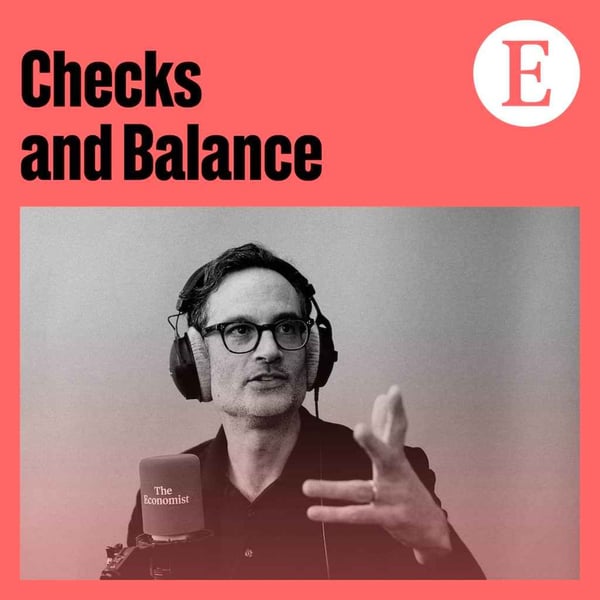Checks and Balance: Alaska, part two—thin ice
Checks and Balance from The Economist
The Economist
4.6 • 1.7K Ratings
🗓️ 30 December 2022
⏱️ 32 minutes
🧾️ Download transcript
Summary
Alaska has an obvious imperative to develop its oil. But climate change is already underway, and the Arctic is warming at nearly four times the global rate. What does our thirst for oil mean for Alaska’s ice?
In the second episode of a special two-part series, Charlotte Howard reports from Alaska. John Walsh from the University of Alaska, who tracks melting sea ice, shares his findings. Climate researcher Sue Natali tells us why thawing permafrost is a particular problem. Alaska’s Governor Mike Dunleavy explains why he sees some silver linings to climate change. And Peter Winsor from the Alaska Wilderness League makes the case against drilling in the Arctic.
You can now find every episode of Checks and Balance in one place and sign up to our weekly newsletter. For full access to print, digital and audio editions, as well as exclusive live events, subscribe to The Economist at economist.com/uspod.
Hosted on Acast. See acast.com/privacy for more information.
Transcript
Click on a timestamp to play from that location
| 0:00.0 | We're getting ready to land now. |
| 0:07.8 | You can see the wheels of the plane, hit the shadow that's cast on the river. |
| 0:14.7 | In June, just before the summer solstice, a small plane took me to America's northern |
| 0:19.6 | edge. |
| 0:20.6 | Here we go. |
| 0:22.8 | I was tagging along with a handful of conservationists and amateur adventurers. |
| 0:31.0 | After a bumpy ride over the craggy peaks of the Brooks Range, our bush plane landed |
| 0:36.2 | on a narrow riverbed in Alaska's National Petroleum Reserve, known as NPR-A. |
| 0:43.0 | Made it. |
| 0:50.0 | A vast expanse bigger than the state of Maine, NPR stretches from the mountains to the northern |
| 0:54.8 | most edge of the state to the Arctic Ocean. |
| 0:58.2 | We pitched our tents beside the river. |
| 1:01.2 | Okay, I am setting up my tent, which involves lots of steaks because it is extremely windy |
| 1:11.6 | here. |
| 1:13.6 | And we cannot have my tent be blowing away, I would be bad. |
| 1:20.2 | So we're in the banks of the Utacock River. |
| 1:26.2 | The river tastes so good, I just filled up my water bottle. |
| 1:31.8 | The tent was most obvious trait was absence. |
| 1:34.8 | There are no roads, no trails, no service for a mobile phone. |
| 1:40.0 | You can hear the wind, it is breezy and the potential for it to be extremely windy is |
| 1:49.4 | high in the next few days. |
| 1:52.3 | So the risk is that you go for a little walk and then you come back and your tent isn't |
... |
Please login to see the full transcript.
Disclaimer: The podcast and artwork embedded on this page are from The Economist, and are the property of its owner and not affiliated with or endorsed by Tapesearch.
Generated transcripts are the property of The Economist and are distributed freely under the Fair Use doctrine. Transcripts generated by Tapesearch are not guaranteed to be accurate.
Copyright © Tapesearch 2025.

